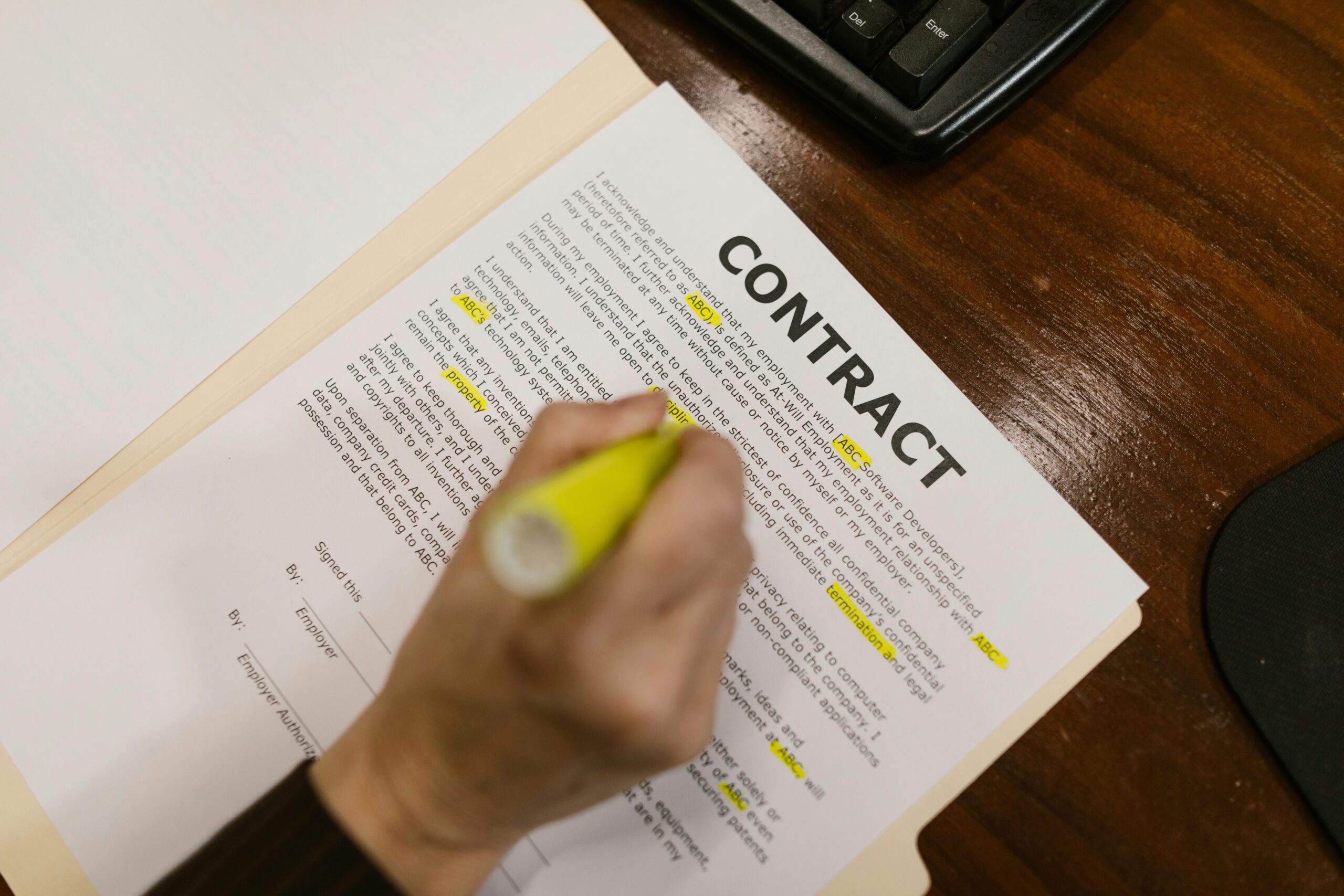Intro:
Germany is one of the top destinations for Polish companies posting workers abroad, thanks to geographic proximity and demand for skilled labor. EU law guarantees the freedom to provide services, allowing a Polish firm to send employees temporarily to another member state without establishing a local company. In practice, this means Polish workers can be “posted” to Germany for a limited time to fulfill a service contract. However, along with this opportunity comes a complex web of legal requirements and compliance challenges. Polish staffing agencies, HR professionals, and operations managers must navigate EU rules and German regulations – from obtaining A1 social security certificates to obeying German minimum wage laws – or face severe penalties. This article explains how the EU posting system works in practice and outlines the key legal obligations and practical hurdles when posting Polish workers to Germany.
EU Freedom of Services and the Posting of Workers
Under EU law (Article 56 of the TFEU), businesses in one member state can provide services in another member state, including sending their own employees to carry out work there temporarily. This “posting of workers” is allowed for up to 12 months (and can be extended to 18 months with notification) under the EU rules1. During a posting, the worker remains employed under the Polish contract, but core employment conditions of the host country must be applied to protect the worker’s rights. In 2018, the EU strengthened these protections with an “equal pay for equal work” principle – meaning a Polish posted worker in Germany is entitled to the same pay rates and key labor standards as a local worker doing the same job . This framework attempts to balance free movement of services with fair competition and worker protection. In short, EU law lets Polish companies send staff to Germany relatively easily, but they must follow German labor rules in practice. Germany itself is the largest recipient of posted workers, and Poland is the second-largest sending country in the EU , making this a significant labor mobility channel.
A1 Certificates and Polish Social Security
One fundamental requirement is securing an A1 certificate for each posted employee. The A1 form, issued by ZUS (Poland’s Social Insurance Institution), proves that the worker remains under the Polish social security system while working in Germany. Polish employers must apply for this certificate before the posting begins. German authorities place great importance on the A1 – if a worker cannot produce a valid A1 during a German inspection, the authorities may presume the worker is subject to German social security laws instead. In that case, the Polish employer could be forced to pay retroactive German social insurance contributions for that worker2. In other words, the A1 certificate is what allows a Polish company to keep paying Polish ZUS contributions (often lower than German contributions) during the assignment abroad. Without it, the cost advantage disappears and the company faces legal trouble. Ensuring every posted worker has an up-to-date A1 certificate (and carrying copies on site) is therefore a top priority.
Minimum Wage and Working Conditions in Germany
Labor conditions in Germany must be respected when posting workers. Foremost among these is paying the German minimum wage (MiLoG) or the applicable industry wage. As of early 2025, Germany’s statutory minimum wage is about €12.82 per hour, and it generally applies to all hours worked by posted employees . Importantly, many sectors in Germany have binding collective agreements that set higher minimum pay rates – for example in construction, industrial cleaning, caregiving, electrical work, and other trades . If a Polish company posts workers in such a sector, it must pay at least the collectively agreed rate for that industry and region, which can be significantly above the base MiLoG rate. The “equal pay for equal work” rule means Polish firms need to check German wage agreements carefully and adjust their workers’ pay (via contract addendums) so it meets the host-country standard3.
What counts as wages? German regulations also define which pay elements can be counted toward the minimum. Generally, the worker’s base gross salary and any normal bonuses count. However, certain allowances often provided by Polish employers do not count toward the German minimum wage. Notably, travel per diems, lodging or meal stipends (“diety” paid to cover the cost of working abroad) cannot be treated as part of wages in Germany . Those must be provided on top of the German minimum remuneration. Beyond wages, German labor law requires adherence to other core conditions: for instance, posted staff are entitled to at least the German legal minimum paid annual leave and must observe German working time limits (maximum working hours, rest periods, restrictions on Sunday work, etc.). In practice, this means a Polish employer has to align working schedules and leave for its posted team with German law, and ensure overtime or night work is compensated as per German rules. All these factors should be planned into the contract and cost of the secondment.
Notification to German Authorities (MiLoG Meldung)
Another crucial step is the notification of the posting to German customs authorities (Zoll) before work commences. Germany operates an online portal (the Meldeportal Mindestlohn) where foreign employers must register details about the posting. In fact, every posting of a worker to Germany must be notified electronically in advance, unless it falls under a very narrow exception (e.g. short-term urgent repair jobs) . The notification requires providing quite comprehensive information: the Polish company’s data, the identity and home address of each posted worker, the address of the workplace in Germany, the expected start and end dates of work, the nature of services (industry sector), details of a contact person in Germany, and a declaration that German labor conditions (minimum wage, etc.) will be honored. If any posted worker’s assignment is extended or other details change, the employer must update the notification accordingly during the posting period.
Failing to submit this notification (or submitting incorrect information) is an administrative offense that can carry high penalties. German enforcement agencies treat the pre-notification as a critical compliance item – it enables inspections and is linked to wage enforcement. For the posting company, this means the posting cannot be a last-minute afterthought; the paperwork must be completed before the employee sets foot on the German job site. The notification portal is available in multiple languages (including English), but it is a German government system and can be cumbersome for first-timers. Many Polish firms engage local compliance specialists or use internal HR staff with German language skills to complete the registration. Neglecting this duty is not an option: German law provides for fines which, in serious cases, can reach tens of thousands of euros for non-compliance4.
Documentation and Language Requirements On-Site
Once the work in Germany is underway, Polish employers need to maintain a ready file of documentation on-site to satisfy potential labor inspections. German customs officers (and other inspectors, like from the labor authority or pension insurance) have the right to visit the workplace and check whether posting rules are being followed. During such inspections, the company must cooperate fully and be able to present key documents immediately, in German . The required on-site documents typically include:
- Identification and permits: Each worker’s ID or passport, and any work permits or visas (if the person is a third-country national).
- Employment contract and posting annex: A copy of the employment contract for each posted worker, plus any addendum outlining the terms of the posting (translated into German).
- A1 certificate: The social security A1 form for each worker, proving their coverage in Poland.
- Working time records: Detailed timesheets or electronic records showing each worker’s daily start and end times, breaks, and total hours. (Accurate time-keeping is very important under German law.)
- Payroll records: Proof of wage payments, such as pay slips and bank transfer confirmations, demonstrating that the worker has received at least the applicable German minimum wage.
- Posting notification receipt: A copy or reference of the submitted notification (Meldeportal confirmation).
All these documents must be available in Germany (physically on site or accessible digitally) and in the German language so that inspectors can review them on the spot5. Polish companies often need to translate employment agreements and other papers into German beforehand. During an inspection, if an employer cannot produce the necessary documentation or refuses cooperation, the authorities can halt the work and impose fines. In some cases, failure to keep proper records (e.g. working hours) is itself an offense. Practically, Polish managers should brief their site supervisors in Germany to maintain a complete folder of these docs (and keep it updated as workers rotate or schedules change). Language can be a barrier – inspectors might not speak Polish or English – so having everything translated is essential for a smooth audit.
Sectoral Restrictions: Construction and Agency Work
While the basic posting rules apply across sectors, certain industries in Germany have additional restrictions or requirements for foreign service providers:
- 🔨 Construction and related trades: The construction industry is heavily regulated under the German Posted Workers Act (AEntG). Generally binding collective agreements in construction not only set higher minimum wages (as noted earlier) but also obligate employers to contribute to the sector’s vacation fund system. Specifically, any company posting construction workers must register with SOKA-BAU, the German construction industry’s leave fund, and pay monthly contributions (currently about 15.4% of the gross wages for work performed in Germany) to finance the workers’ paid vacation . This scheme ensures that a Polish construction worker accrues paid leave rights during their German assignment, even if their Polish contract wouldn’t normally grant as much. Compliance with SOKA-BAU is mandatory – failure to contribute is a violation that can lead to sizeable penalties (and SOKA-BAU actively pursues unpaid contributions, even through German courts) . Aside from the wage and holiday rules, the construction sector also triggers joint liability: a German general contractor hiring a Polish subcontractor can be held jointly liable if the Polish firm does not pay its workers the German minimum wage. This makes German clients very cautious about compliance in their subcontracting chain.
- 👷 Temporary agency work: If a Polish company is effectively lending workers to a German company (i.e. the workers are under the supervision of the German client), this is considered temporary agency work rather than a standard service contract. In such cases, German law requires the Polish agency to obtain an AÜG license– a permit under the German Temporary Employment Act (Arbeitnehmerüberlassungsgesetz) – to legally supply labor in Germany . In other words, you cannot simply “post” workers to a German firm for labor-only arrangements without a staffing license. Polish employment agencies have the right to apply for this German permit, but they must meet the same conditions as German agencies (including demonstrating financial security, reliability, and compliance with German rules). Operating a cross-border temp agency without the license is illegal and can draw fines up to €500,000 in Germany . Recent guidance from the German Federal Employment Agency also tightened oversight of arrangements like Employer of Record or remote work scenarios, making it clear that if a Polish-based worker is essentially working for a German company’s benefit (even remotely), the AÜG might apply . For Polish firms, the takeaway is that providing labour (manpower) to a German business is treated differently than providing a service. True service contracts – where the Polish company delivers an outcome or project – are allowed under posting rules, but manpower supply requires a license and compliance with all German temp agency regulations.
It’s worth noting that other sectors can have specific rules too. For example, in the meat processing industry, Germany for a time banned subcontracting to combat abuse (a law passed in 2020 restricted subcontracted labor in meat plants, effectively meaning Polish firms couldn’t post workers there except as direct employees). Another example: the transport/road haulage sector has special EU rules for driver postings (the Mobility Package regulations). While detailing each sector is beyond our scope, Polish employers should always verify if their sector is subject to any special restrictions in Germany6.
Time Limits on Posting Duration
How long can a posting last? By nature, a posting is temporary – it is not meant to replace migration or permanent work abroad. Under the EU Posting of Workers Directive, if a posting exceeds 12 months, it triggers additional obligations. Specifically, once a worker has been in Germany for longer than 12 months (continuously or cumulatively, counting extensions), they are entitled to all the host country’s employment conditions, not just the core minimum standards . (An extension to 18 months is possible if the employer submits a motivated notification to German authorities, explaining the need for a longer assignment .) After this 12- or 18-month threshold, the employment relationship is essentially subject to German labor law in full – with only a couple of exceptions such as rules on terminating the contract and supplementary pensions.
In practical terms, most Polish postings to Germany are far shorter – often a few months for a project, or seasonal work for under a year. If a company does need to keep staff in Germany beyond a year, it can apply for the 6-month extension, but after 18 months the worker is no longer considered “posted” under EU law. At that point, the situation might require other solutions (possibly hiring locally or rotating in a replacement). The time limit rule was introduced to prevent companies from using posting to circumvent long-term labor integration. For HR managers, it means careful workforce planning: long deployments in Germany must be tracked, and if someone approaches the 12-month mark (across any number of contracts or if the posting was interrupted), the company should prepare for expanded obligations. It’s also wise to document the start and end of each employee’s posting period accurately (as this must be stated on the A1 form as well). Note that the A1 certificate can cover up to 24 months if approved , but the labor law provisions switch at 12/18 months regardless of A1. In summary, posting is a time-bound opportunity – not a back door to permanent employment abroad.
Liability and Risks for German Clients
German companies that engage Polish service providers also carry some co-responsibility for ensuring the law is followed. As mentioned, in sectors like construction, the client or main contractor is jointly liable for the wages of posted workers down the subcontracting chain . This means if a Polish subcontractor fails to pay the required minimum wage, the German contractor can be held accountable to pay those wages (to the workers) in addition to any fines the Polish firm faces. German businesses, therefore, have a strong incentive to only work with reputable Polish partners who can demonstrate compliance (often German clients will ask for proof of A1 certificates, notification receipts, and even inspect payroll records of the posted staff). In some cases, contracts between German and Polish firms include clauses requiring the Polish side to indemnify the client for any penalties or to submit to audits.
Beyond wage liability, German purchasers of services could face legal consequences if they knowingly collude in evading the rules. For example, if a German company attempts to use a Polish contractor to supply labor cheap and off-the-books, both parties can be charged under anti-illegal employment laws. Reputational risk is also a factor: high-profile cases of labor exploitation or accidents can bring bad press and damage relationships with regulators. As enforcement tightens, German authorities have shown they will pursue end users, not just foreign employers, in cases of abuse. For German clients, the safest course is to treat posted workers almost as if they were their own employees in terms of working conditions – and to verify that all formalities (A1, notifications, licenses if needed) are in place.
Practical Challenges and Compliance Risks
Complying with the letter of the law is challenging, and many Polish companies have learned the hard way that posting abroad is not as simple as just having an A1 form. Even after the EU’s 2020 reform, audits show that numerous employers misunderstand or overlook obligations . Here are some of the key practical barriers and risks when posting Polish workers to Germany:
- Complex regulatory landscape: Navigating the German legal framework is complicated because multiple laws apply (the MiLoG minimum wage law, the AEntG posted workers law, the AÜG labor leasing law, plus various collective agreements and German tax rules). What’s required can also depend on the sector, the duration, and the profile of workers. For instance, as noted, a short-term installation job might skip some paperwork, whereas a three-month construction assignment triggers the whole array of requirements. Many Polish SMEs rely on external advisors or partner agencies to handle compliance, since keeping up with German regulations (often published only in German) is daunting.
- Administrative burden and language: Fulfilling the posting obligations involves substantial paperwork – from filing the Zoll notifications and obtaining A1 certificates, to translating documents and maintaining meticulous records of time and pay. All of this must be done in German or bilingually. Companies face extra costs for professional translations and possibly hiring German-speaking coordinators. Mistakes in documentation (even minor ones) can lead to fines during inspections. There is also the day-to-day challenge for posted employees themselves, who may struggle with German language on site, especially regarding safety instructions or local workplace rules. Communication barriers can increase the risk of misunderstandings and non-compliance (e.g. a worker might not comprehend a local rule about work on Sundays or a safety regulation, leading to a violation).
- Frequent changes in law and rates: German labor laws and collective agreements don’t stand still. The minimum wage is reviewed regularly (it increased to €12.00 in late 2022 and €12.82 by 2025, and could rise again). Many industry agreements update yearly. Furthermore, authorities may introduce new rules – for example, Germany recently adjusted its rules on remote cross-border work under the AÜG in late 2024 . Polish employers must stay up-to-date with these developments. A wage that was compliant last year might fall short this year if rates increased. Also, starting in 2024, Germany implemented an electronic reporting system for working hours in some sectors, which foreign employers might also need to use. Keeping track of all these changes is a continuous effort.
- Genuineness of posting & EU law grey areas: To prevent abuse, EU law stipulates that posting should be “temporary” and that the employer should conduct substantial business in the home country (Poland). If a company exists only to recruit workers in Poland and send them straight to Germany, it might be deemed an “letterbox” company circumventing the rules. German inspectors increasingly look at whether a posting is genuine. While Germany lost a court case trying to require a minimum prior employment period for posted workers, authorities can still scrutinize cases where, say, a worker was hired in Poland one week and immediately sent to Germany the next . If they suspect the Polish firm has no real activity in Poland or the worker has no real integration there, they could declare it an illegal arrangement. Additionally, a controversial hurdle remains for certain workers: third-country nationals (e.g. Ukrainian or Belarusian citizens) employed in Poland often need a special German “Van der Elst” visa to be posted to Germany, even though EU law would not require it. Germany continues to enforce this visa requirement for non-EU posted workers, which has been criticized as incompatible with the freedom to provide services . For Polish companies that employ many non-EU workers, this is a practical barrier – obtaining such visas can be time-consuming and uncertain, deterring them from posting these workers at all.
- High stakes enforcement: Germany is known for strict enforcement. The penalties for non-compliance can be ruinous, especially for smaller companies. Fines up to €30,000 are common for administrative lapses (like not filing a notification or minor underpayments), and in severe cases (e.g. intentional wage underpayment or illegal staff leasing) fines can reach hundreds of thousands of euros . On top of fines, companies can be barred from future public contracts in Germany if found guilty of serious violations. For the workers, consequences might include deportation if they lack proper work authorization (this can happen if a non-EU national is posted without the right visa) . These high stakes mean Polish employers must treat compliance as more than a bureaucratic formality – it’s truly essential to the business’s ability to operate internationally. German clients, too, will cut ties quickly if a subcontractor brings trouble with the authorities.
Common industries for posting: Despite the challenges, posting workers from Poland to Germany remains widespread in certain sectors. Polish companies frequently provide services in construction and skilled trades, manufacturing and industrial assembly, logistics and warehousing (including truck transport), cleaning and facility maintenance, and installation of machinery or equipment. These are areas where German companies have labor shortages or need specialized crews for projects. For instance, Polish crews are often seen on German building sites, Polish truck drivers haul goods across German roads, and Polish technicians install or service factory equipment. There are also postings in agriculture (seasonal farm work), hospitality (catering at events), and healthcare/care work (though direct care jobs are more regulated). In all these services, Polish firms can be competitive thanks to lower home costs – but only if they manage to comply with Germany’s rules. The volume of postings has grown in recent years, reflecting Poland’s role as a major labor provider in the EU. This trend is likely to continue, making it ever more important for companies to understand and overcome the legal barriers.
Conclusion: Posting Polish workers to Germany is a viable way for businesses to expand services and for workers to gain experience, but it is not without its hurdles. The freedom to provide services across borders comes with strings attached – detailed host country requirements that demand careful preparation. From securing A1 certificates and paying German-level wages, to registering the posting and keeping everything documented in German, a successful posting involves significant upfront effort. Moreover, the environment is one of increasing enforcement and tightening rules, as both Poland and Germany (with support from the EU’s Labour Authority) crack down on abuses of the system. Staffing companies and HR departments should approach postings almost like a project in legal compliance. With the right diligence, the process can be managed – allowing Polish firms to take advantage of opportunities in Germany’s market. But ignoring the rules is a recipe for fines, legal liability for clients, and reputational damage. In summary, the Poland-to-Germany posting corridor remains open for business, but only for those who play by the rules and stay alert to the practical challenges.
Sources:
- Social Europe, Between The Cracks: https://www.socialeurope.eu/between-the-cracks-third-country-posted-workers#:~:text=Posting%20falls%20under%20the%20EU,same%20rules%20as%20EU%20citizens ↩︎
- Migrant Legal – Posting workers to Germany – What you need to know? — https://migrant.legal/en/posting-workers-to-germany-what-you-need-to-know/ ↩︎
- Arletti & Partners – Posting workers to Germany: requirements and obligations — https://arlettipartners.com/posting-workers-to-germany/ ↩︎
- Anita Heindlmaier / Social Europe – Between the cracks: third-country posted workers — https://www.socialeurope.eu/between-the-cracks-third-country-posted-workers ↩︎
- Migrant Legal – Posting workers to Germany – What you need to know? — https://migrant.legal/en/posting-workers-to-germany-what-you-need-to-know/ ↩︎
- ATL Law – SOKA-BAU – the holiday fund for the construction industry in Germany — https://atl-law.pl/en/soka-bau-kasa-urlopowa-dla-branzy-budowlanej-w-niemczech-english/ ↩︎



